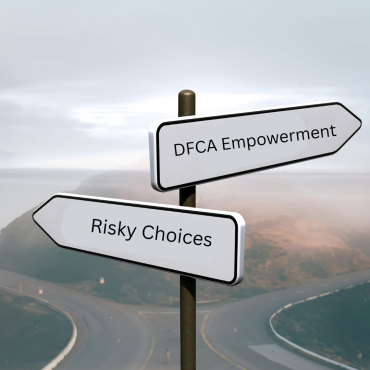Stressed Out Teens Can Turn to Drugs and Alcohol
Stress is an inevitable part of life, and teenagers are no exception.
The Centers for Disease Control and Prevention (CDC) recently reported an alarming trend: More teens are turning to drugs and alcohol as a coping mechanism for stress, anxiety, and loneliness. And often, they’re facing these alone.
This raises several crucial questions: 1. Why are teens particularly vulnerable,and 2. What can parents and educators do to help?
1. Why Teens are Vulnerable
First, teenagers face many stressors during a time of significant physical, emotional, and social change. Academic performance, social expectations, social media/cyberbullying, personal insecurities, and the uncertainty of the future are all huge stressors that can feel overwhelming.
Second, there is a link between stress and substance use. The CDC report notes seeking relief from stress, anxiety, and depression as the top reasons that teens turn to substances like marijuana and alcohol. This comes amongst reports of rising anxiety and depression among youth across the country. Teens turn to substances as a coping mechanism, from peer pressure, mental health issues, or because they are accessible.
2. How Parents and Educators Can Help: Recognize Warning Signs
Recognizing the signs of substance use early can make a significant difference in a teen’s life. Parents and educators must be vigilant for signs that include:
- Sudden changes in behavior or emotions
- Physical symptoms, such as bloodshot eyes or unexplained injuries
- Withdrawal from activities
- A decline in academic performance
- Changes in social circles
Support to help teens navigate stress
Early prevention interventions are crucial to support teens who may turn to drug use to cope with stress. Promote interventions that:
1. Reduce stress and improve mental health. Reducing stress and promoting mental health among adolescents can help lessen motivations for substance use.
2. Teach healthy coping skills. One healthy coping skill is encouraging teens to engage in activities that promote mental well-being, such as sports, the arts, or hobbies. Teaching stress management techniques like these mindfulness exercises can also be beneficial.
3. Open lines of communication. Open and non-judgmental communication can help teenagers feel more supported and understood. Addiction experts, including those at the CDC, also urge parents and educators to talk to kids about the risks of using drugs alone, especially, which includes providing naloxone to reverse opioid overdoses.
If you suspect a teen in your life is struggling with stress and/or substance use, do not hesitate to seek help from a mental health professional. Every little intervention — the earlier, the better — plays a significant role in helping teenagers navigate stress without turning to substances.
Drug Free Clubs of America is on a mission to reduce the impacts of drug use on youth. Across the nation, drug and alcohol use is on the rise among teens. We provide students with practical tools and techniques to navigate peer pressure and choose a healthy lifestyle. Partnering with schools and communities, we offer preventative programming to meet students where they are. Through randomized drug testing, educational resources, a positive outlet, and a supportive community, we are changing school cultures and reducing alcohol, marijuana, vaping, and other detrimental activities among our members and the entire school body. Drug Free Clubs of America has over as over 7,000 active student and faculty/staff members and Clubs in over 50 schools in Ohio, Kentucky, West Virginia, and California.




Add Comment